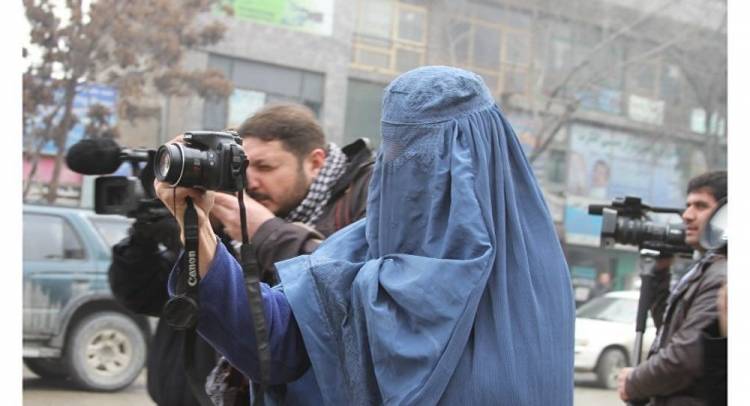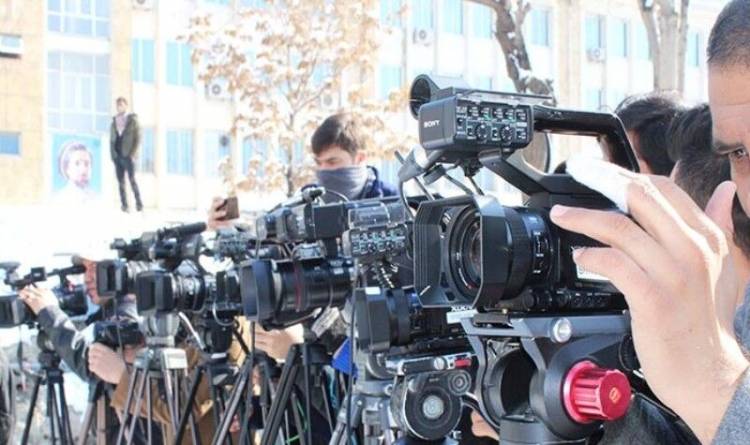The Decline of Free Media in Afghanistan
Freedom of expression and free and open media, especially women journalists are the great achievements of the last 20 years, which are destroyed with the fall of the democratic system by the Taliban in Afghanistan. Among other promotions and increases, more than 744 mass media were established, which include radio, television, print media, and online media.
The Activities and Statistics of Media:
From 774 media, only 231 are still active and be operating under insecurity, and censorship pressure. It means, 29.844% of the media still are active in Afghanistan. The reasons are including insecurity, economic poverty, journalists' risk, lack of financial support, and the mental atmosphere of the country. According to the Nai office (Supporter Open Media in Afghanistan), 165 local and foreign journalists have been killed since 2001 in the country. The previous government has accused the Taliban of most of the killings and assassinations. In addition, meanwhile the beginning of the Taliban regime in the country, there have been registered more than 60 cases of violence against the media and journalists, including killings, assassinations, injuring, beatings, arrests, threats, and insults. Statistics show that 75% of violence and even murders of journalists have been increased compared to previous years.
Media Challenges:
Today's media outlets face many problems such as; self-censorship, Taliban Censorship, and pressure on media. They have nothing, but censorship and violence to media. However, active media must follow the Taliban's demands and wishes. Similarly, even the Taliban spokesman (Zabihullah Mujahid), there is no one responsible for the violence of media. Unfortunately, he lies in every speech and that's it. The Taliban have control over media organizations, reporters, and their voices. Access to information is limited. Except for Zabihullah Mujahid, there is no one to give interviews with the media. Reporters and media persons have no right to go to governmental organizations to cover the events. Spokespersons for government agencies and ministries and the public relations and information departments are inactive; Employees are not allowed to even work with the PR section. Although, the Taliban claim that to support freedom of expression and the media; they still do not have any positive action and compatibility with these cases; even They do not believe in democracy. Therefore, there is no place for media law, media ethics, access to information rights, expression of opinion. They also interred into the TV studio and showed their violence to the world community.
Journalists Challenges:
The majority of journalists have given up their media activities to save their life, property, and preserve their true selves. The Taliban arrests beat, and torture journalists in Herat, Balkh, Kabul, Nangarhar, and other provinces. They have been killed Fahim Dashti in Panjsher, a journalist in Nangarhar provinces, the Taliban killed six women who were journalists and civil activists in Mazar-e-Sharif, and in the latest case, a media worker committed suicide due to economic poverty, in Kabul. In addition, journalists are trying to leave Afghanistan, but some of them have been able to leave the country. Almost all women journalists were barred to work with mass media. Furthermore, the Taliban's violence against them is very high and dangerous.
Financial Support Challenges:
Another problem is the lack of financial support of journalists and media organizations by the world community. Mostly, the media industry and production are not active. Even, international media cannot work freely. In this sense, governmental, private, and public media ownership are not defined in the Taliban regime. Unfortunately, there is no news about the TV series only religious, film industry, cinema, and multimedia productions. The Taliban have no commitment to the media and journalists, the international community has not yet taken any financial support to save their life.
Laws and Regulations Challenges:
The Taliban does not have any rule to control the media. The Taliban have desecrated access to information law, media law, private media. The suspension of laws, including the mass media law, access to information law, the regulation of private media establishment, and the fundamental rights of citizens are the big problems. The situation has been led by the Taliban, because; they want to destroy and terminate media activities and their morals of freedom of media and expression. In other words, the Taliban's policy is to shut down media organizations, and journalists. they have not been recognized by the international community as a government; There is no guarantee for managing and handling media complaints. If the situation continues like this, freedom of expression, private ownership of the media, and free and open media will be lost and the achievements of the last 20 years will be zero, and Afghanistan will return to an authoritarian system of press and government tyranny.
Lack of Transparency and Assistance in the Evacuation Process (Corruption):
Unfortunately, the process of evacuation of journalists to a safe place by the world community is not transparent and appropriate. According to High-Risk Afghan Journalists Identification Committee (HAJIC) The international community has evacuated and transferred those persons, who are not reporters and journalists. This action of the international community has prevented the evacuation of journalists in danger. The United States, Canada, France, Germany, Italy, Spain, Australia, and other countries have failed to evacuate real journalists. Corruption in the process of evacuation can be interpreted into four points: first, companies or organizations related to the international community; Second, Afghan employees who are trusted by the international community; Third, some popular media officials and managers like Moby Group, 1TV, Khurshid RTV, and etc.; And fourth, airlines such as Kam Air, PIA, Blackwater, even Qatar Airways. The High-Risk Afghan Journalists Identification Committee (HAJIC) blames the international community because they made no attempt to identify endangered journalists. (HAJIC) has identified many journalists who are at high-risk and threat, especially women journalists that they live in a hidden place in case of threats. But, many countries evacuated anyone who applied for immigration even with any special requirement, without the identification of real Journalists. While The Committee (HAJIC) can help the world community to identify those journalists who are at high risk and want to work with the international community.
Recommendations:
The media persons are grateful to the international community for their support over the past 20 years. But overlooking past achievements will be over by the Taliban, and it is not a good point what we need for democracy. We ask the international community to continue their work as closely as possible for media growth and development, and freedom of expression. The international community should not allow the voice of the mass media to be silenced and freedom of expression to be destroyed by the Taliban. The challenges for democracy, freedom of expression, and mass media will increase day by day. Therefore, the Committee wants to pay serious attention to Afghan journalists to help them and wish pleased with them. Over the past 20 years, journalists have worked tirelessly for the freedom of expression, democracy, and strengthening relations with the international community. It is a performance and human responsibility for the international community to support mass media and journalists in the country. This support will be including the following points:
1. Hurry up the process of evacuation of journalists to safe and secure places by the world community;
2. Financial support for journalists and active media which are facing economic problems and poverty;
3. Increase pressure on Taliban to provide real support for freedom of media and human rights;
4. Condemn the Taliban to decrease violence and killing of Afghan journalists by the world community.


















Comments (0)
Facebook Comments